Nobody knows where a black hole’s information goes
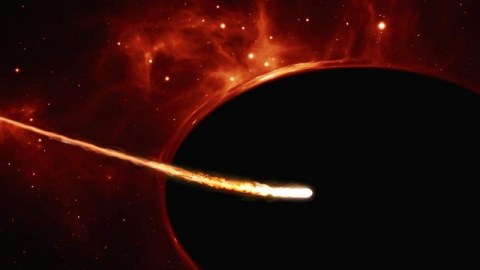
Is it conserved? Destroyed? Radiated away? 40+ years on, we still don’t have answers.
This article was contributed by Sabine Hossenfelder. Sabine is a theoretical physicist specialized in quantum gravity and high energy physics. She also freelance writes about science.
“Work gives you meaning and purpose and life is empty without it.” –Stephen Hawking
According to Google, Stephen Hawking is the most famous physicist alive, and his most famous work is the black hole information paradox. If you know one thing about physics, therefore, that’s what you should know. Before Hawking, black holes weren’t paradoxical. Yes, if you throw a book into a black hole you can’t read it anymore. That’s because what has crossed a black hole’s event horizon can no longer be reached from the outside. The event horizon is a closed surface inside of which everything, even light, is trapped. So there’s no way information can get out of the black hole; the book’s gone. That’s unfortunate, but nothing a physicist sweats over. The information in the book might be out of sight, but there’s nothing paradoxical about that.
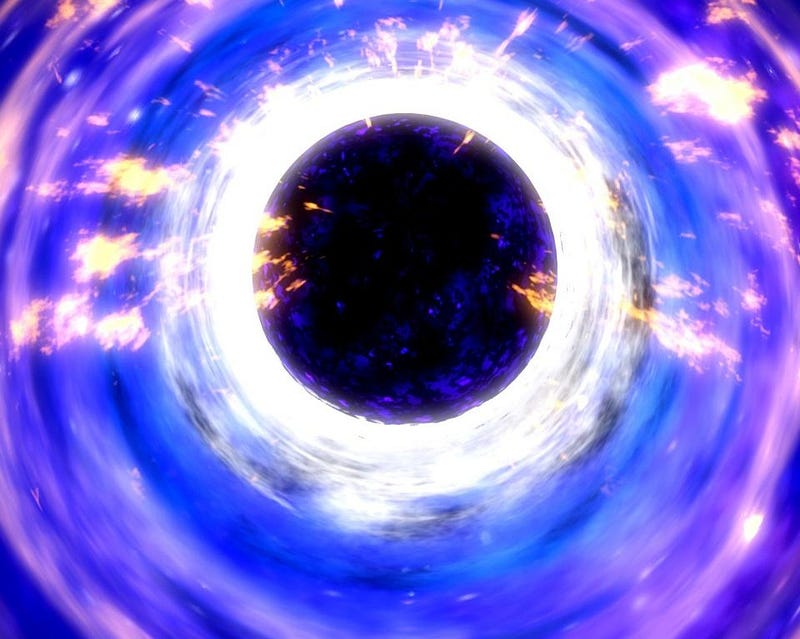
Then came Stephen Hawking. In 1974, he showed that black holes emit radiation and this radiation doesn’t carry information. It’s entirely random, except for the distribution of particles as a function of energy, which is a Planck spectrum with temperature inversely proportional to the black hole’s mass. If the black hole emits particles, it loses mass, shrinks, and gets hotter. After enough time and enough emission, the black hole will be entirely gone, with no return of the information you put into it. The black hole has evaporated; the book can no longer be inside. So, where did the information go?
You might shrug and say, “Well, it’s gone, so what? Don’t we lose information all the time?” No, we don’t. At least, not in principle. We lose information in practice all the time, yes. If you burn the book, you aren’t able any longer to read what’s inside. However, fundamentally, all the information about what constituted the book is still contained in the smoke and ashes.

This is because the laws of nature, to our best current understanding, can be run both forwards and backwards — every unique initial-state corresponds to a unique end-state. There are never two initial-states that end in the same final state. The story of your burning book looks very different backwards. If you were able to very, very carefully assemble smoke and ashes in just the right way, you could unburn the book and reassemble it. It’s an exceedingly unlikely process, and you’ll never see it happening in practice. But, in principle, it could happen.
Not so with black holes. Whatever formed the black hole doesn’t make a difference when you look at what you wind up with. In the end you only have this thermal radiation, which — in honor of its discoverer — is now called “Hawking radiation.” That’s the paradox: Black hole evaporation is a process that cannot be run backwards. It is, as we say, not reversible. And that makes physicists sweat because it demonstrates they don’t understand the laws of nature.
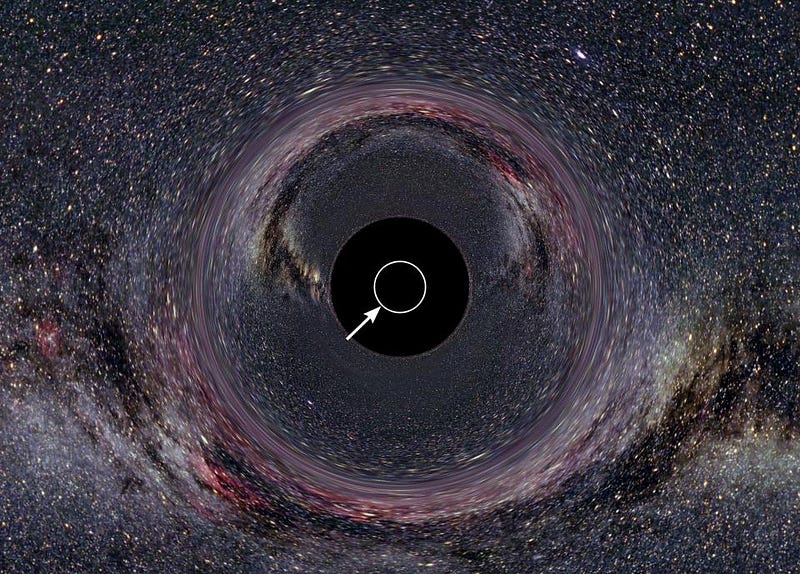
Black hole information loss is paradoxical because it signals an internal inconsistency of our theories. When we combine — as Hawking did in his calculation — general relativity with the quantum field theories of the standard model, the result is no longer compatible with quantum theory. At a fundamental level, every interaction involving particle processes has to be reversible. Because of the non-reversibility of black hole evaporation, Hawking showed that the two theories don’t fit together.
The seemingly obvious origin of this contradiction is that the irreversible evaporation was derived without taking into account the quantum properties of space and time. For that, we would need a theory of quantum gravity, and we still don’t have one. Most physicists therefore believe that quantum gravity would remove the paradox — just how that works they still don’t know.
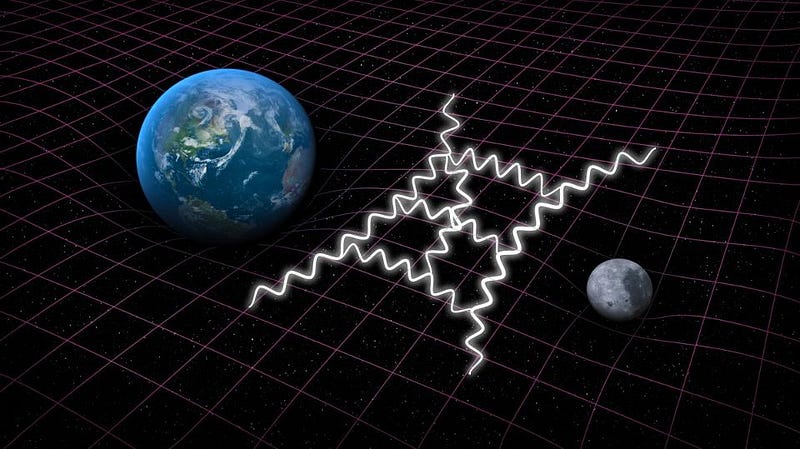
The difficulty with blaming quantum gravity, however, is that there isn’t anything interesting happening at the horizon — it’s in a regime where general relativity should work just fine. That’s because the strength of quantum gravity should depend on the curvature of space-time, but the curvature at a black hole horizon depends inversely on the mass of the black hole. This means the larger the black hole, the smaller the expected quantum gravitational effects at the horizon.
Quantum gravitational effects would become noticeable only when the black hole has reached the Planck mass, about 10 micrograms. When the black hole has shrunken to that size, information could be released thanks to quantum gravity. But, depending on what the black hole formed from, an arbitrarily large amount of information might be stuck in the black hole until then. And when a Planck mass is all that’s left, it’s difficult to get so much information out with such little energy left to encode it.
For the last 40 years, some of the brightest minds on the planets have tried to solve this conundrum. It might seem bizarre that such an outlandish problem commands so much attention, but physicists have good reasons for this. The evaporation of black holes is the best-understood case for the interplay of quantum theory and gravity, and therefore might be the key to finding the right theory of quantum gravity. Solving the paradox would be a breakthrough and, without doubt, result in a conceptually new understanding of nature.
So far, most solution attempts for black hole information loss fall into one of four large categories, each of which has its pros and cons.
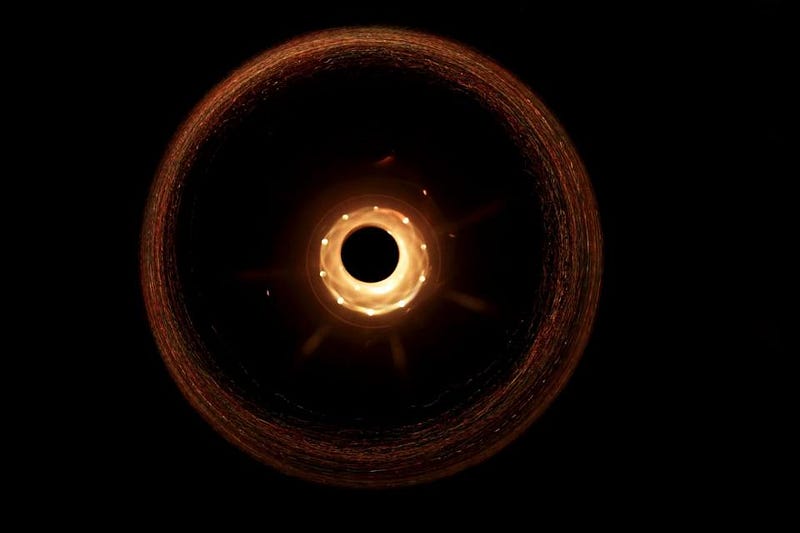
1. Information is released early. The information starts leaking out long before the black hole has reached Planck mass. This is the presently most popular option. It is still unclear, however, how the information should be encoded in the radiation, and just how the conclusion of Hawking’s calculation is circumvented.
The benefit of this solution is its compatibility with what we know about black hole thermodynamics. The disadvantage is that, for this to work, some kind of non-locality — a spooky action at a distance — seems inevitable. Worse still, it has recently been claimed that if information is released early, then black holes are surrounded by a highly-energetic barrier: a “firewall.” If a firewall exists, it would imply that the principle of equivalence, which underlies general relativity, is violated. Very unappealing.
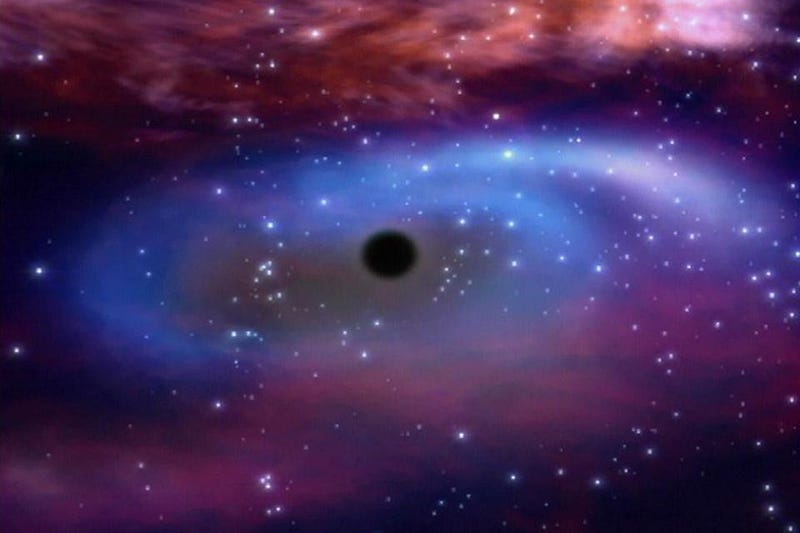
2. Information is kept, or it is released late. In this case, the information stays in the black hole until quantum gravitational effects become strong, when the black hole has reached the Planck mass. Information is then either released with the remaining energy or just kept forever in a remnant.
The benefit of this option is that it does not require modifying either general relativity or quantum theory in regimes where we expect them to hold. They break down exactly where they are expected to break down: when space-time curvature becomes very large. The disadvantage is that some have argued it leads to another paradox, that of the possibility to infinitely produce black hole pairs in a weak background field: i.e., all around us. The theoretical support for this argument is thin, but it’s still widely used.
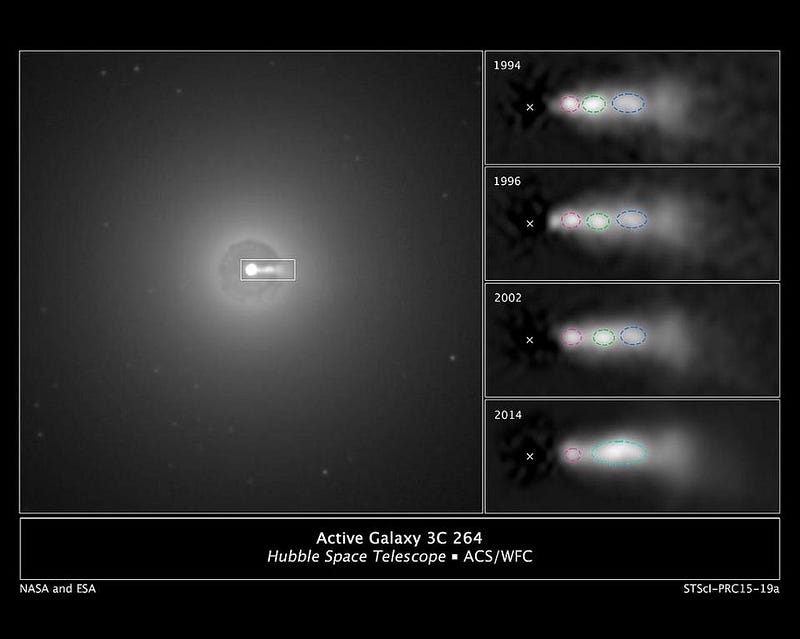
3. Information is destroyed. Supporters of this approach just accept that information is lost when it falls into a black hole. This option was long believed to imply violations of energy conservation and hence cause another inconsistency. In recent years, however, new arguments have surfaced according to which energy might still be conserved with information loss, and this option has therefore seen a little revival. Still, by my estimate it’s the least popular solution.
However, much like the first option, just saying that’s what one believes doesn’t make for a solution. And making this work would require a modification of quantum theory. This would have to be a modification that doesn’t lead to conflict with any of our experiments testing quantum mechanics. It’s hard to do.
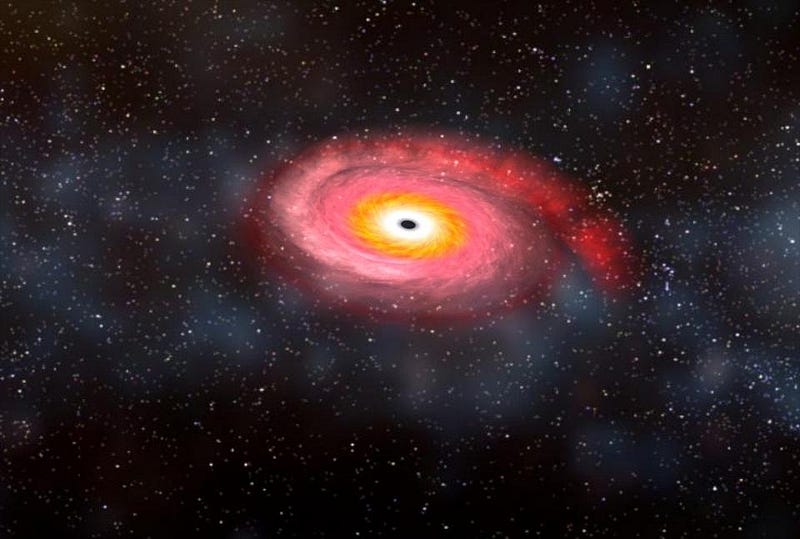
4. There’s no black hole. A black hole is never formed or information never crosses the horizon. This solution attempt pops up every now and then, but has never caught on. The advantage is that it’s obvious how to circumvent the conclusion of Hawking’s calculation. The downside is that this requires large deviations from general relativity in small curvature regimes, and it is therefore difficult to make compatible with precision tests of gravity.
There are a few other proposed solutions that don’t fall into any of these categories, but I will not — cannot! — attempt to review all of them here. In fact, there isn’t any good review on the topic — probably because the mere thought of compiling one is dreadful. The literature is vast. Black hole information loss is without doubt the most-debated paradox ever.
And it’s bound to remain so. The temperature of black holes which we can observe today is far too small to be observable. Hence, in the foreseeable future nobody is going to measure what happens to the information which crosses the horizon. Let me therefore make a prediction. In 10 years from now, the problem will still be unsolved.
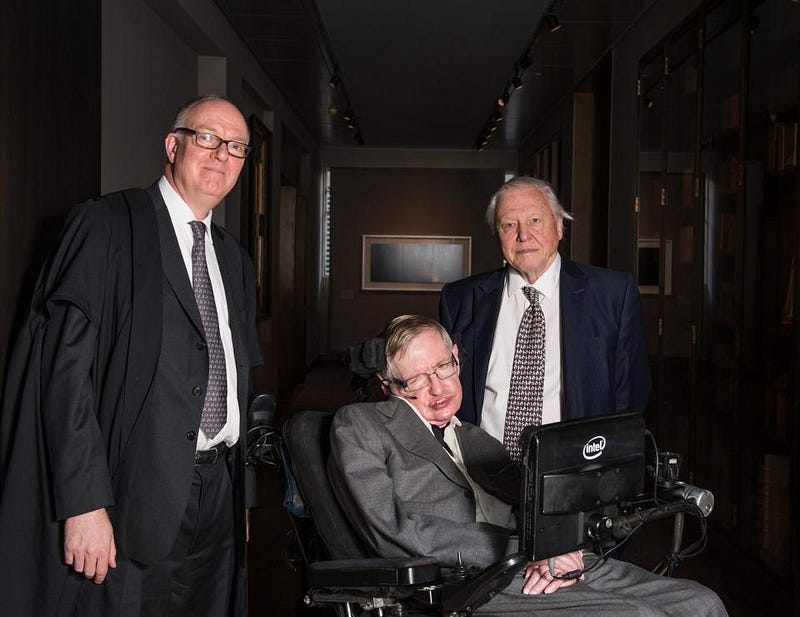
Hawking just celebrated his 75th birthday, which is a remarkable achievement by itself. 50 years ago, his doctors declared him dead soon, but he’s stubbornly hung onto life. The black hole information paradox may prove to be even more stubborn. Unless a revolutionary breakthrough comes, it may outlive us all.
(I wish to apologize for not including references. If I’d start with this, I wouldn’t be done by 2020.)
This post first appeared at Forbes, and is brought to you ad-free by our Patreon supporters. Comment on our forum, & buy our first book: Beyond The Galaxy!





